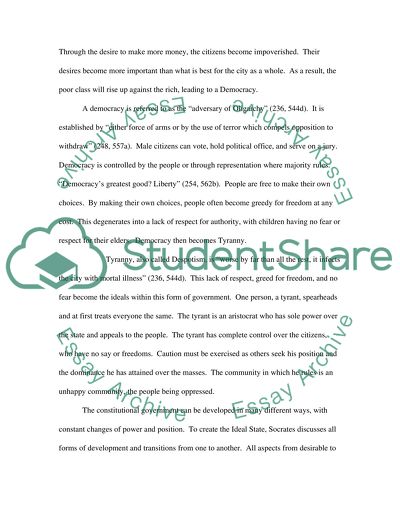Plato discusses different forms of government within his book entitled Essay. Retrieved from https://studentshare.org/miscellaneous/1550007-plato-discusses-different-forms-of-government-within-his-book-entitled-the-republic
Plato Discusses Different Forms of Government Within His Book Entitled Essay. https://studentshare.org/miscellaneous/1550007-plato-discusses-different-forms-of-government-within-his-book-entitled-the-republic.


